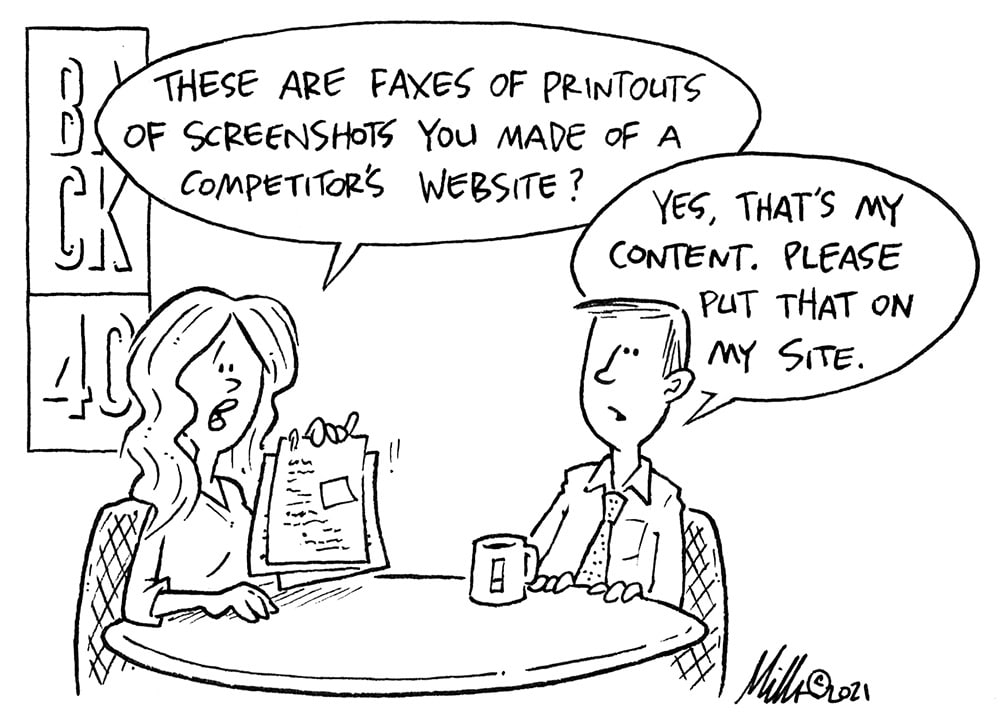
Soft skills are important to a project’s success but can’t be easily measured. Some of the most critical soft skills for project managers include:
- Communication
- Collaboration
- Problem Solving
- Time Management
- Leadership and Motivation
- Emotional intelligence and Composure
- Teamwork
Takeaway: The ability to develop these skills can mean the difference between a successful Project Manager and an unsuccessful one.

Everyone has a slightly different approach and opinion regarding project management. Many have a personal favorite in terms of time management or productivity tools. And with good reason, as so much of project management is unique – it’s an amalgamation of the things that work for you. However, these seven soft skills can help you no matter how you approach projects. Project managers are often portrayed as a sort of superhuman race – but in reality, they’re just regular people who know how to use project management tools, organization skills, and communication. skills to achieve goals with better efficiency and confidence.
Project Management Soft Skills

Communication
A project manager must effectively communicate with clients, team members, and other stakeholders. Communication is essential because it allows project managers to coordinate tasks and objectives between various project stakeholders. Communication is often verbal, but it can be through written channels like email or instant messenger. These communications aim to convey information, share ideas, and solicit feedback.
In this role, you must also communicate with clients to ensure that the client’s expectations are aligned with the project’s scope of work. This type of communication helps the client understand that specific project management soft skills will be required to complete the project.
In order to display effective leadership, a project manager must also have the ability to communicate effectively in a group setting or when addressing a large audience. This is particularly important when presenting a project status update or disseminating information about a specific topic that affects all stakeholders involved in the project.
Collaboration
Collaboration is a project management soft skill that is used to describe how well a person works with others. It involves working with other people on a project and requires communication, conflict management, and negotiation.
The following are some examples of how a project manager would demonstrate the team collaboration skill set:
- Being able to work with others in order to achieve a common goal. All members involved in a project must be committed to the project’s success so that they can work toward achieving it.
- Having the ability to communicate with other people in a way that will make them comfortable talking with you and willing to share information.
- Knowing how to work well in a team even when there are differences among team members, such as age, gender, race, and religion.
- Having the ability to resolve conflicts among team members or between the team and other people outside of the group is an example of conflict resolution and is an important trait of a great project manager.
- An example of teamwork skills is demonstrating the ability to negotiate effectively with other people involved in or outside of the project.
Problem Solving
Problem-solving is a soft skill that requires you to resolve issues in your project. As a project manager, you will be the one to identify problems and then devise solutions to deal with those problems.
There are two main types of problem-solving – proactive and reactive:
- Proactive problem solving involves taking steps before a problem arises to avoid it happening at all.
- Reactive problem solving is when you solve a problem after it has been identified as an issue.
Problem-solving skill set includes the following soft skills:
- Creativity
- Problem identification and analysis
- Problem definition
- Planning & organizing
- Monitoring and controlling
- Decision making & prioritizing
- Delegation and motivation
There are many different ways that you can approach problems so that they don’t cause your projects to fail:
Collect information on any potential issues before deciding how to resolve the issue. Make sure that you collect any relevant information on the problem. This will help you figure out how serious the issue is and how much time and money will be required to resolve it.

Time Management
Time Management is a project management soft skill that describes how well a project manager can plan and prioritize their time. A good time manager knows what to do and does it instead of being busy with no real results.
Being able to manage time and managing a project are two different things. A project manager needs to have many other skills, including communication, delegation, reporting, and more.
Project scheduling tasks are often prioritized based on deadlines and importance, but that’s not enough for effective time management. Time is also managed by identifying and eliminating wasteful activities, delegating tasks to others, planning for contingencies, and using project management software to streamline the process.
Time management is vital in every role because it allows project managers to focus on the most significant deliverables and make sure they’re on track to finish by the deadline. It also helps them focus their communication to get things done on time.
The time management skillset includes the abilities too:
- Develop and maintain a schedule for completing tasks.
- Manage interruptions.
- Prioritize and organize tasks and stay focused on priorities.
- Use time efficiently.
- Work under pressure without sacrificing quality.
- Maintain composure, confidence, and optimism even in stressful situations.
- Be accurate and dependable.

Leadership and Motivation
Project managers need to inspire and motivate a team of people from varied backgrounds and interests, ensuring that they all work together towards the same goal. To do this, the project manager should be able to understand the strengths and weaknesses of their team, as well as be able to communicate in ways that are appropriate to each particular team member.
Project managers also need to lead by example, set tasks and goals for their team members, check work has been done according to plan, and provide positive feedback where this is due.
Leadership
A project manager’s role requires a certain amount of leadership skills to motivate their team by showing them their value within the broader context of the company. The most important aspect, in this case, is being able to present a clear vision of what the project is intended to achieve. This must be communicated effectively so that every team member understands it and can therefore contribute towards achieving it.
Motivation
How do you motivate people? Provide them with clear expectations of what you expect from them. Make sure they understand their role in the project. Offer incentives when necessary and praise them for a job well done.
Emotional intelligence and Composure
Emotional Intelligence, or EQ, and Composure are two project management soft skills that can help you lead your project team more effectively.
What Is Emotional Intelligence?
Emotional intelligence (EI) is the ability to identify, assess and control the emotions of oneself, of others, and groups. People who have a high EI can recognize their own emotions and those of others; they’re also capable of controlling their own emotions and recognizing the feelings of people around them.
Emotional intelligence is closely related to empathy, an ability to understand the perspectives of others and to feel with them during difficult times. It’s also closely related to social skills: someone with a high EI is skilled at building rapport with other people (more on this later). All three of these components work together with emotional intelligence: relating to people you work with makes them more likely to trust you and allows you to build strong working relationships.
Emotional intelligence has many positive benefits for businesses, such as positively influencing teamwork and reducing turnover rates. High EI managers tend to have better working relationships.
Teamwork
Teamwork is a project management soft skill that is also a part of the Project Planning Process. Each project team member has all the skills needed to succeed on their own. However, when they work together, they need to overcome the challenges of combining individual efforts into a group effort.
Tasks become more challenging to complete individually than when working as a team. The team becomes stronger by combining individual talents and skills and working towards common goals.
The project manager needs to encourage teamwork while utilizing all of the skills to ensure the project’s success.
Conclusion
In summary, soft skills are just as crucial to PMs as technical skills and project management skills.
While some of these soft skills might be easier to develop than others, it’s essential to recognize that they play a vital role in achieving project success. If you want your projects to be successful and your team happy and motivated, put some effort into developing these skills within yourself. Not only will this make you a better PM, but it will ensure that you get the results that you need from your project team.
